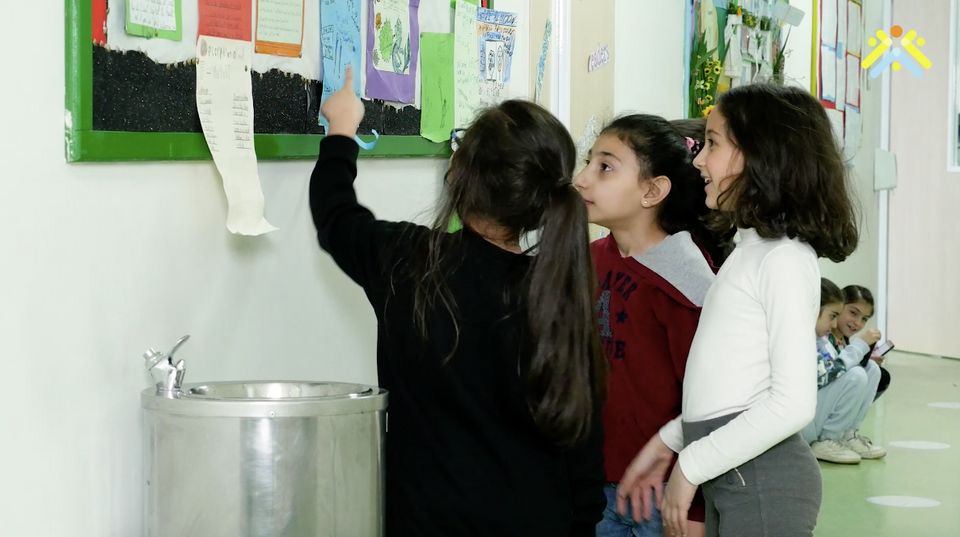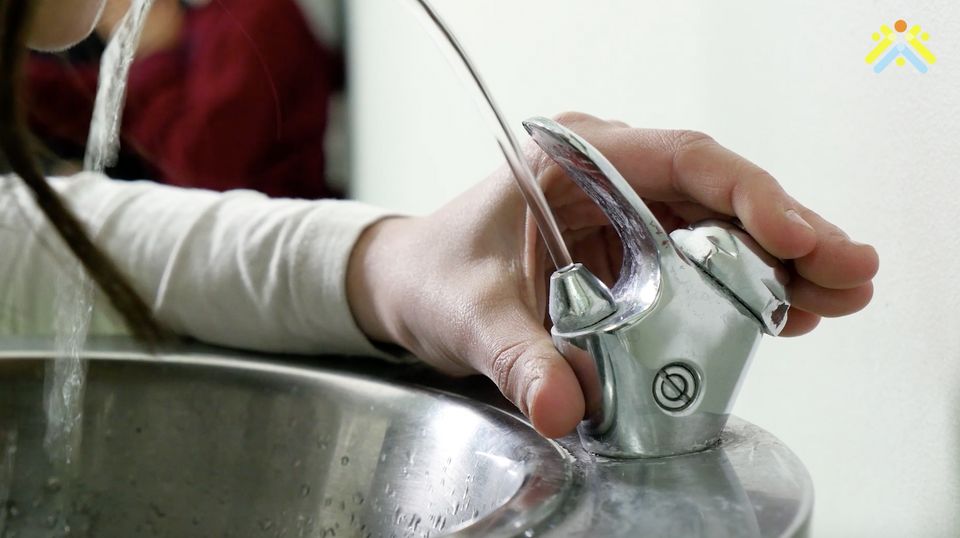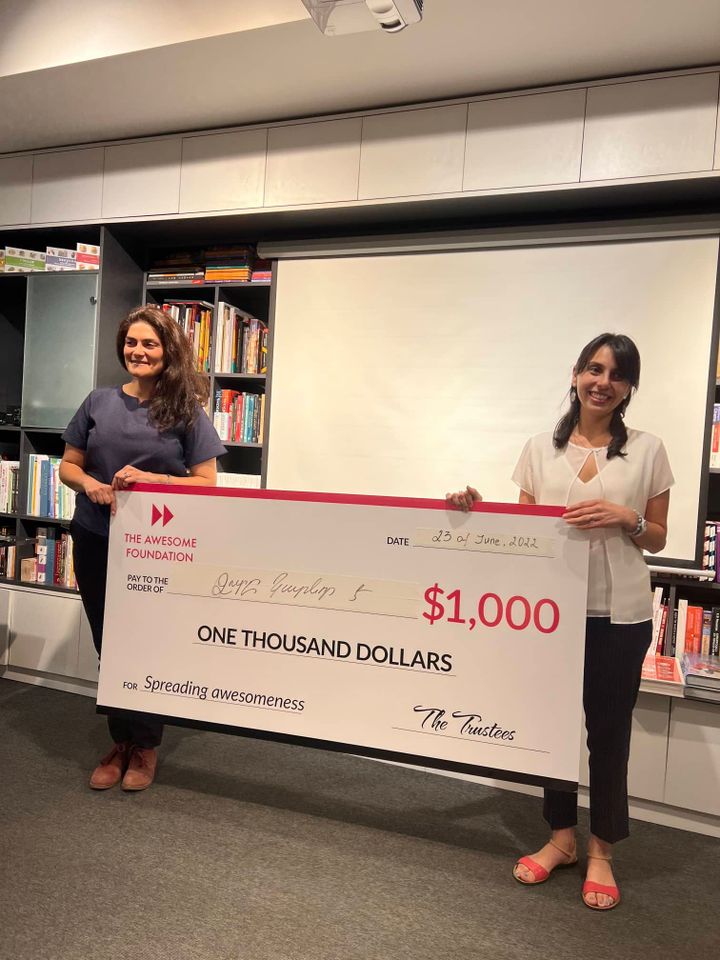Water Is Important In School
Let's make drinking water accessible, sanitary, and dignified in school

2 collaboration proposals
About collaboration projects
Collaboration projects require tangible needs (equipment, clothing, computers, etc.) as well as the support of people through their knowledge, experience, and/or connections to solve a specific problem.
Collaboration Needs

Социолог

Диетолог
Water Is Important In School
We are seeking a sociologist and a nutritionist to cooperate with us for this important project.
How did you drink water when you were in school?
If you didn't go to a private school in Armenia, you probably drank water from the school restrooms using your palms, a cup, a bottle, or you didn't drink water at all while at school.
It turns out this trend continues today. Drinking water is mainly located in the school restroom, which most children avoid using for various reasons. In 2019, the Office of the Human Rights Defender of the Republic of Armenia studied water and sanitation issues in 120 schools across Armenia and found that in 61% of said schools children drink water from the faucet using their palms or a communal cup. These two methods of drinking water are risky in terms of spreading infections and are simply not dignified ways of drinking water.
Parents usually send drinking water to school with their children; however, this poses several problems:
1. extra weight added to the school bag,
2. extra financial expense for the family, because reusable and safe water containers are not always affordable for all,
3. usage of additional plastic and creation of extra waste
However, drinking water in school must be accessible for all children, because they spend a significant part of their day at school. Insufficient quantities of water may affect not only children's wellbeing, concentration, and memory during classes, but also their overall health, maintenance of their sense of thirst, weight gain, and other health indicators.
That's why the Parent Community' for Children's Wellbeing NGO has initiated the 'Water is Important in School' campaign to explore access to drinking water in schools, the reasons for taking water to school from home, barriers to drinking water in school, the importance of the issue for all parties involved, and to offer an affordable and available solution for schools.
WHAT WE NEED
We are seeking a sociologist and a nutritionist to cooperate with and conduct this research toward a possible solution, as a result of which access to drinking water will be included in the comprehensive sanitation structure of schools, thereby improving the daily wellbeing of our children every day while at school.
Dear sociologists, join our project, help us generate a questionnaire, determine the research sample size, assess the needs, collect and analyze data, and present it to the public and all relevant authorities.
Dear nutritionists, join our project, help us formulate the nutrition portion of the research questionnaire and conduct focus group discussions.
Let's work together to find a solution for this important issue and improve our children's daily wellbeing at school. Together, we can change the culture of drinking water in our school for our children once and for all.
When I was in school, I remember the drinking water and using the restroom in general was a problem in school, because it smelled terribly. I would come home very thirsty. Now my kids don't use the restrooms for the same reasons.
Marine Hovhannisyan, parent
For years, I have been sending water to school with my kids, because drinking water is in the restroom, which is not convenient to use. It is not welcome to use tap water from the restroom.
Astghik Safaryan, parent
When the brain does not want to drink water in uncomfortable situations, it naturally makes the feeling of thirst slowly subside.
Lidia Ayvazyan, doctor-nutritionist
This project supports:
Sustainable Development Goals
The Future Armenian goals

"Parent Community" for Children's Wellbeing NGO completed its cooperation project with the reArmenia platform within the framework of the "Water is important at school" campaign.
Thanks to this cooperation and the professionals involved through the platform, we have completed our research work, the results of which we are going to present to the RA Ministry of Education, Science, Culture and Sports.

As a result of our collaboration with Brevis as well as their advice and suggestions, our team was able to finalize the questionnaires prepared for parents, middle school students and school administration.
In the stage, we printed 120 questionnaires for parents, 114 of which were filled out during the general parent-teacher conference organized at the school in September.
We are currently entering the information from the questionnaires into an electronic database, checking their accuracy for further research and analysis.

We hurry to inform you that Breavis has joined our project with the help of the ReArmenia platform.
We are currently working together on three questionnaires needed to monitor the effectiveness of the "Water is important in School" pilot project, analyze the data obtained and present it in the form of a report to all stakeholders.

We have another wonderful news ...
On June 23, as part of the Awesome Yerevan Foundation, we presented our project to install pilot drinking water fountains at Shirvanzade school.
We presented the project in a short but detailed way, answered the questions, remembered our school years and our experience of drinking water at school, and won this month's $1000 prize.
Over the next three months, we plan to install fountains at Shirvanzade school, collect data from parents, students, and school staff to evaluate the effectiveness, convenience, cost, and other indicators of the installed drinking water fountains.
We are very excited and thankful for this prize. This is the first step towards a very significant change in our schools and in the school life of our children.

On June 16, our team met with Arsen Baghdasaryan, Head of the General Education Department of the Ministry of Education, Science, Culture and Sport of the Republic of Armenia.
The goals of the meeting were twofold:
- To present the "Water is possible in school" project, its importance and research work we have done so far on the project. We discussed our willingness to pilot drinking water fountains in a few schools with the resources of our NGO and fundraising effort, to evaluate the effectiveness of the installed fountains and to present the data to all stakeholders. The pilot launch will allow us to understand the effectiveness of our proposed solution for the needs of children, parents and school staff. The results of the pilot will determine the further course of the project and the possible installation of drinking water fountains in other schools and educational institutions of the Republic of Armenia. We will work with the ministry to compile a list of pilot schools and work with schools toward this goal.
- Additionally, we will cooperate with the Ministry in order to implement our proposed solution in more than 200 schools that are currently being newly built and reconstructed. We see a very good opportunity here, as the installation of drinking water fountains can be easily done during the construction work already underway and become part of the complex sanitary and hygienic arsenal of the mentioned schools.
The discussion was very productive for us. We are very excited about the agreement reached and we are even more determined to move the project forward.
Water Is Important In School
Let's make drinking water accessible, sanitary, and dignified in school

2 collaboration proposals
About collaboration projects
Collaboration projects require tangible needs (equipment, clothing, computers, etc.) as well as the support of people through their knowledge, experience, and/or connections to solve a specific problem.
Collaboration Needs

Социолог

Диетолог











